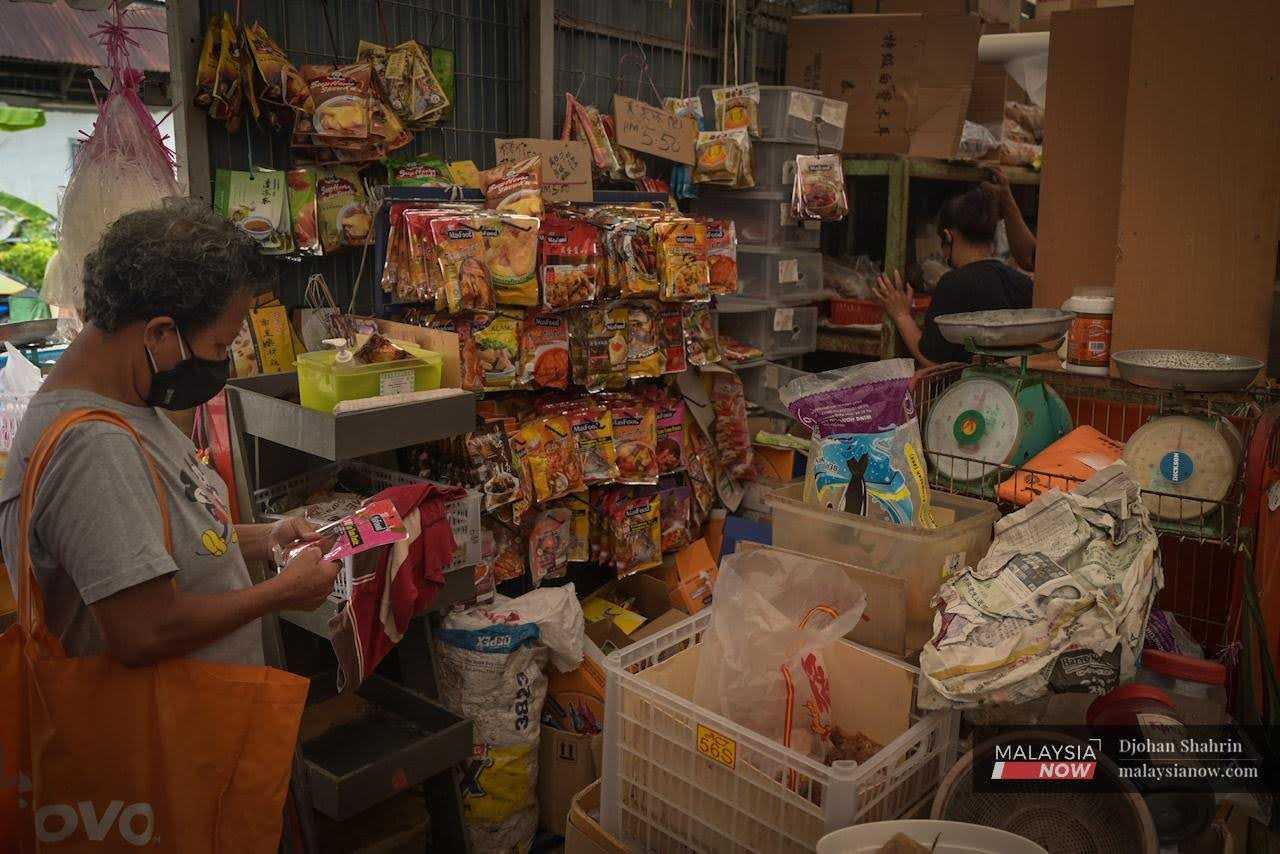Families struggle to make ends meet as cost of living bites
Even combined household salaries are sometimes not enough to pay for everything.
Just In
Rashid and his wife Akma earn a combined monthly salary of nearly RM10,000, a comfortable enough amount – at least on paper.
But today, they are running low on disposable income and have been dipping into their savings in order to cover their daily expenses and that of their four schoolgoing children.
Rashid, 37, said it was in January this year that he realised the money they usually allocate for kitchen expenses had increased by roughly RM120 per month although they were still buying the same quantities and quality of goods.
He and his wife tried to cut down on the number of items on their list, but the final amount was still more than usual.
The next month, when school holidays began, their expenses grew as they had to fork out more for food and childcare while they were at work.
Before they knew it, March had arrived, bringing with it more financial headaches over the amount they would have to pay for uniforms and supplies ahead of school reopening next week.
"We also have to start saving up for the fasting month," Rashid told MalaysiaNow.
"But we can't put aside even a small amount this year. This is why we are worried. Our pockets are shrinking and we might have to tighten our belts during the fasting month."
Rashid and Akma are just one among many families trying to cope with the rising cost of living.
Many from the Malay community are also concerned about the approaching Ramadan period and the subsequent Hari Raya celebrations, during which extra money is usually needed for festivities and trips back to home towns.
Inflation
Economists had warned since the beginning of the year of an increase in price of goods and the cost of living, in urban and rural areas alike.
Part of the challenge is due to the inflation rate, which is expected to remain at 4.0% to 5.0% this year.
Family financial expert Fazli Sabri spoke of a need for change in daily money matters.
He said current studies had found that the majority of individuals do not make plans for so-called seasonal expenses such as payments for school, school holidays and festive occasions.
"Every year, it's the same thing," he added. "The school season begins, and celebrations come around again."
For husband and wife Guna Gurusamy and Karvita, such plans have helped them weather many periods of seasonal expenses.
Since they tied the knot 12 years ago, they have regularly set aside savings for various types of expenditure: car insurance, celebrations and school holidays, to name a few.
But they, too, have been affected by the rise in cost of living which has thrown a spanner in the works of their savings plan.
"We used to have more in our savings to buy things or to go on holiday twice a year," Guna said.
"But now, it's hard. We eat very simply and even our children are older and know how expensive things have become."
Guna, who is the chief security guard at a condominium near his house in Kajang, Selangor, said he would become troubled each time he thought of his family's financial situation.
"I withdrew some of my EPF money before, to repair my wife's car," he said.
"She uses it for e-hailing, to earn a little for the family. It's a good thing we had our EPF money, otherwise we would have had to junk the car."
Today, both he and his wife work more than 12 hours a day but can barely cover their daily expenses.
Their eldest child, at 13, takes care of the two others as they cannot afford a babysitter.
"Anything could happen while we are at work. But all we can do is pray for the best.
"Each day, we have just enough to eat. There is nothing for anything extra," Guna said.
Subscribe to our newsletter
To be updated with all the latest news and analyses daily.
Related Articles
Most Read
No articles found.
